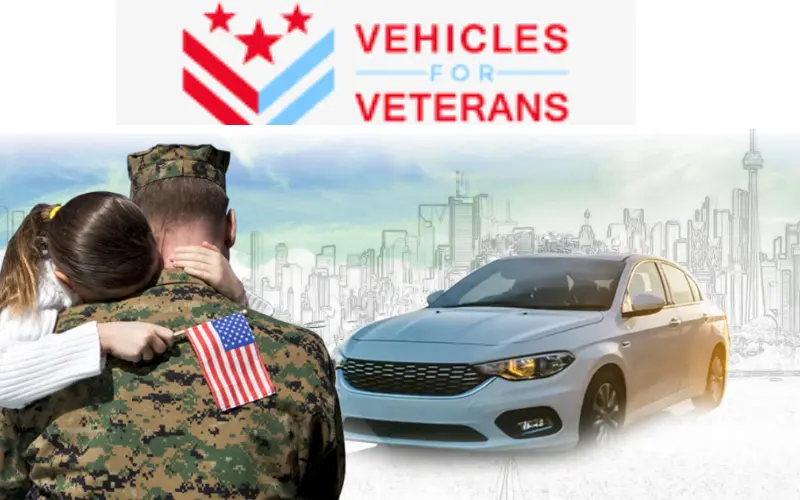Vehicles for Veterans [5 Steps to Donate Your Vehicle]

Donating a vehicle to support veterans is a meaningful way to give back to those who have served our country. Whether you have an old car, truck, or even a motorcycle that you no longer need, donating it can make a significant impact on the lives of veterans in need. This guide will walk you through everything you need to know about donating vehicles for veterans, including why it’s important, how it benefits veterans, and the steps involved in the donation process.
Importance of Vehicles for Veterans
Supporting veterans through vehicle donations is crucial for several reasons. First and foremost, it provides much-needed assistance to veterans who may be struggling with mobility issues or lack of reliable transportation. Many veterans face challenges transitioning to civilian life, and having access to a vehicle can greatly improve their quality of life by enabling them to commute to work, attend medical appointments, or simply run daily errands with independence and dignity.
Moreover, donating a vehicle is a tangible way to show gratitude and appreciation for the sacrifices veterans have made. It allows individuals and communities to come together to support those who have served our country bravely. By donating a vehicle, you directly contribute to enhancing the well-being and livelihoods of veterans, helping them reintegrate into civilian society successfully.
In addition to these direct benefits, vehicle donations often support organizations that provide essential services to veterans, such as housing assistance, job training, medical care, and mental health support. Your donation can therefore have a ripple effect, positively impacting not just one veteran’s life but potentially benefiting an entire community of veterans and their families.
Overall, supporting veterans through vehicle donations is a powerful way to honor their service, improve their quality of life, and contribute to the broader effort of assisting veterans in need. In the following sections, we will delve deeper into how vehicle donations specifically benefit veterans, the practical steps involved in donating a vehicle, and important considerations such as tax benefits and frequently asked questions.

How Vehicle Donations Benefit Veterans
Vehicle donations provide substantial benefits to veterans by addressing critical needs and enhancing their overall well-being. Here are some key ways in which these donations make a difference:
- Mobility and Independence: Many veterans face mobility challenges due to disabilities or lack of transportation options. Donated vehicles enable veterans to commute to work, attend medical appointments, and participate in community activities independently.
- Financial Relief: Owning and maintaining a vehicle can be costly. By donating a vehicle, veterans can save money on transportation expenses, allowing them to allocate their resources towards other essential needs.
- Access to Opportunities: Reliable transportation opens doors to job opportunities, educational programs, and social services that are crucial for veterans transitioning to civilian life.
- Support Services: Proceeds from vehicle donations often fund programs that provide housing assistance, job training, healthcare, and mental health support tailored to veterans’ needs.
- Community Support: The act of donating a vehicle demonstrates community support and appreciation for veterans’ service, fostering a sense of belonging and solidarity.
Steps to Donate Your Vehicle
Donating your vehicle to support veterans is a straightforward process that involves several key steps:
Eligibility Requirements Before donating, ensure you meet any eligibility criteria set by the charity or organization you wish to donate to. Typically, this involves having clear title ownership and the vehicle being in a donatable condition.
Choosing a Charity or Organization Research and select a reputable charity or nonprofit organization that supports veterans through vehicle donations. Ensure they are registered as a tax-exempt organization with the IRS to ensure your donation is tax-deductible.
Preparation of Your Vehicle Prepare your vehicle for donation by ensuring it is clean and in working condition (if possible). Remove personal belongings and gather all necessary documentation, including the title and any maintenance records.
Donation Process Contact your chosen charity or organization to arrange for the donation. They will typically arrange for the pickup or drop-off of your vehicle. Once the donation is complete, you will receive a receipt acknowledging your donation.
Tax Benefits of Donating Your Vehicle
Donating a vehicle to a qualified charitable organization can offer significant tax benefits. You may be eligible to deduct the fair market value of the vehicle from your taxable income if you itemize your deductions. The charity will provide you with a receipt stating the value of your donation, which you will need for tax purposes.

Conclusion
In conclusion, donating your vehicle to support veterans is a powerful way to make a positive impact on their lives. By providing veterans with access to reliable transportation, you contribute to their mobility, independence, and overall well-being. The benefits of vehicle donations extend beyond the individual veteran, benefiting families and communities as well.
Throughout this guide, we’ve explored why supporting veterans through vehicle donations is important, how these donations directly benefit veterans, and the practical steps involved in donating your vehicle. From understanding eligibility requirements to choosing a reputable charity and enjoying potential tax benefits, every aspect of the donation process is designed to make it easy for you to give back.
Call to Action
Consider donating your vehicle today to support veterans in need. Your contribution can make a significant difference in their lives and help them thrive post-service. Whether you have an old car sitting unused or are looking to upgrade your vehicle, your donation matters.
FAQs about Vehicles for Veterans
Are there any costs involved in donating my vehicle? Typically, there are no costs to you when donating your vehicle. The charity may arrange for free pickup or towing of your vehicle.
Can I donate a vehicle that is not in running condition? Yes, many charities accept vehicles in various conditions, including those that are not running. However, it’s best to check with the charity beforehand.
How quickly can I expect the donation process to be completed? The timeline for completing the donation process can vary depending on the charity and logistics involved. Some charities can process donations within a few days, while others may take longer.
Will I receive a receipt for my donation? Yes, reputable charities provide donors with a receipt acknowledging their donation. This receipt is essential for claiming tax deductions.



![Meritage Homes [Comprehensive Guide 2024]](https://webbezz.xyz/wp-content/uploads/2024/06/Meritage-Homes-768x480.webp)
![InTown Homes [Affordable Luxury and Comfort]](https://webbezz.xyz/wp-content/uploads/2024/06/InTown-Homes-768x480.webp)
